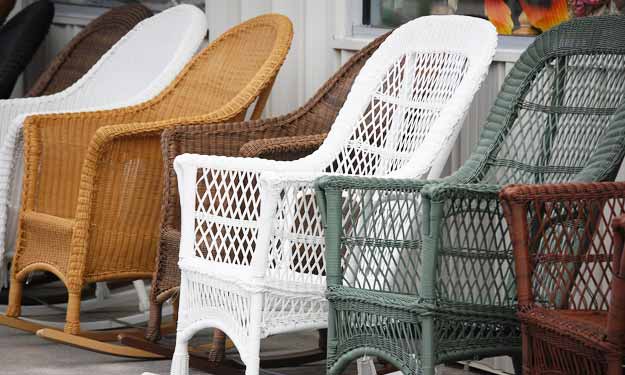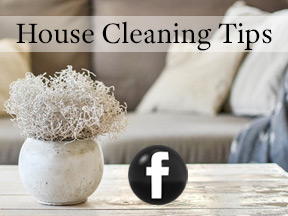Cleaning Outdoor Wicker Furniture

Tips for Cleaning Outdoor Wicker Furniture.
How to Clean Outdoor Wicker Furniture
Cleaning outdoor wicker furniture may seem intimidating at first due to its intricate weave, but with the right approach, it’s a straightforward task that keeps your furniture looking fresh and inviting. Contrary to popular belief, wicker isn’t a material – it’s a weaving technique. Wicker furniture can be made from natural fibers like rattan, willow, bamboo, or grasses, as well as synthetic materials like resin (a plastic-like material often used for outdoor use). Rattan is the most common material used in wicker furniture due to its flexibility and durability. Resin wicker, also known as all-weather wicker, is typically best suited for outdoor settings because it resists moisture and UV rays better than natural fibers. Whether your furniture is natural or synthetic, regular care and cleaning will help extend its life and maintain its appearance.Regular Maintenance for Cleaning Outdoor Wicker Furniture
Cleaning outdoor wicker furniture regularly is essential to prevent buildup of dust, debris, mildew, or damage from the elements.- Dust frequently using a soft brush, handheld vacuum with a brush attachment, a microfiber cloth, or even a toothbrush for small crevices. A can of compressed air is also great for removing debris from tight weaves.
- Keep wicker protected from the elements. While resin wicker is made for the outdoors, it’s still best to place all wicker furniture under a covered patio or awning. Use waterproof furniture covers when not in use.
- Avoid letting it sit on wet surfaces like grass or damp patios, as moisture can cause mold, mildew, or warping.
- Inspect regularly for loose weaves, broken strands, or chipped finishes. Address small repairs early to prevent larger issues.
- Wipe down weekly with a slightly damp cloth to prevent dust buildup and remove surface dirt before it becomes grime.
- Dry thoroughly after any cleaning to prevent sagging or mildew. Use a towel and/or place the furniture in the sun to air dry completely before use.
Removing Dirt and Grime from Outdoor Wicker Furniture
When cleaning outdoor wicker furniture that has been neglected for a while, a deeper clean may be necessary.- Vacuum between crevices with a brush attachment to remove surface debris. A toothbrush, dry paintbrush, or tweezers can help with stubborn dirt in tight spaces.
- Prepare a solution of warm water and a few drops of mild dish soap or detergent.
- Dip a soft cloth or sponge into the soapy water and gently scrub the wicker. Avoid oversaturating natural wicker with water to prevent warping.
- Use a toothbrush or small brush to gently scrub heavily soiled areas or stubborn dirt in corners.
- Rinse lightly with a clean damp cloth to remove soap residue. Do not hose off natural wicker.
- Dry thoroughly using towels and allow the furniture to air dry completely before use.
Removing Mold and Mildew from Wicker Furniture
Cleaning outdoor wicker furniture often involves addressing mold or mildew – especially after exposure to rain or high humidity. Safety first: Wear gloves, a mask, and eye protection.- Brush off surface mold or mildew with a soft-bristled brush.
- Choose one of the following cleaning solutions:
- White vinegar solution: Mix equal parts white vinegar and water.
- Bleach solution: Mix 1 part bleach to 3 parts water.
- Spray the affected areas with the chosen solution and let it sit for 10 minutes.
- Scrub gently using a sponge, toothbrush, or soft brush to lift the mold or mildew.
- Rinse thoroughly with clean water.
- Dry completely using a towel and allow to air dry outdoors in the sun.
Removing Stains from Wicker Furniture
Cleaning stains from outdoor wicker furniture requires prompt attention, especially for natural wicker, which can absorb liquids quickly.- Blot fresh spills immediately with a soft, dry cloth. Avoid rubbing, which can push the stain deeper into the weave.
- Mix warm water with mild dish detergent in a small bowl.
- Dip a soft cloth or sponge into the soapy water and dab the stained area.
- Rinse the spot with a clean damp cloth.
- Dry thoroughly. Use a towel and allow the area to air dry.
- Repeat if needed.
Retouching, Repainting, or Refinishing Wicker Furniture
If cleaning outdoor wicker furniture doesn’t restore its appearance – or if the paint or finish is chipped – it might be time to give it a facelift.- Clean the piece thoroughly first, and let it dry completely.
- Lightly sand flaking or rough areas.
- Apply primer if you’re covering up dark stains or bare spots.
- Use a spray paint or outdoor-safe paint designed for wicker or plastic (for resin wicker). Apply several thin, even coats.
- If using varnish, select one rated for outdoor use and UV protection.
Cleaning and Caring for Outdoor Wicker Furniture
- Clean regularly to prevent buildup of dirt and mildew.
- Store indoors or under covers during winter or extended rainy seasons.
- Use cushions or seat pads to reduce direct wear and tear.
- Re-seal or repaint every few years if needed, especially for natural wicker exposed to the outdoors.
Furniture Cleaning

















